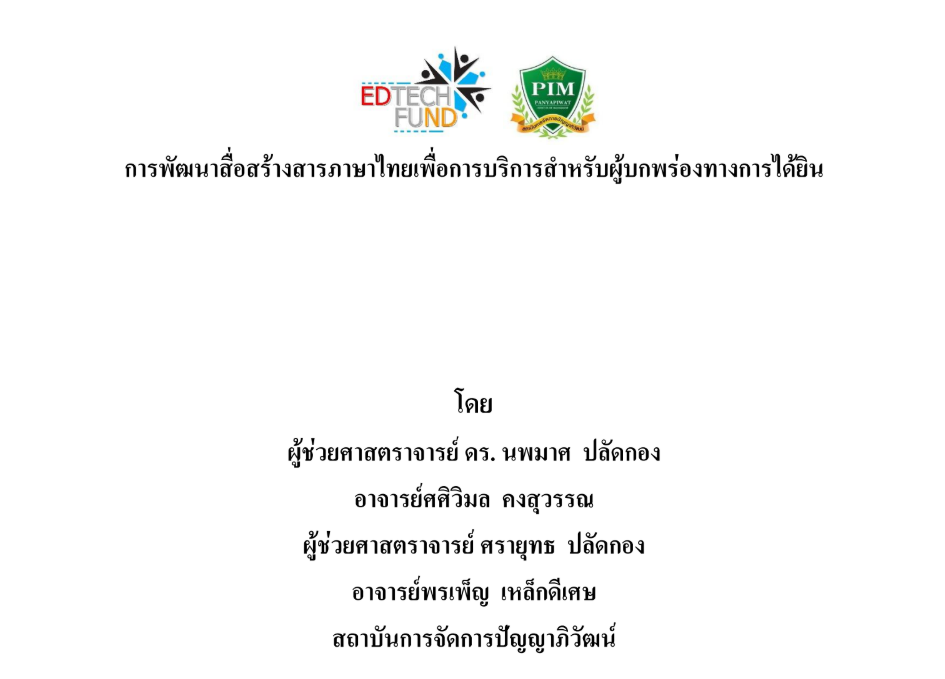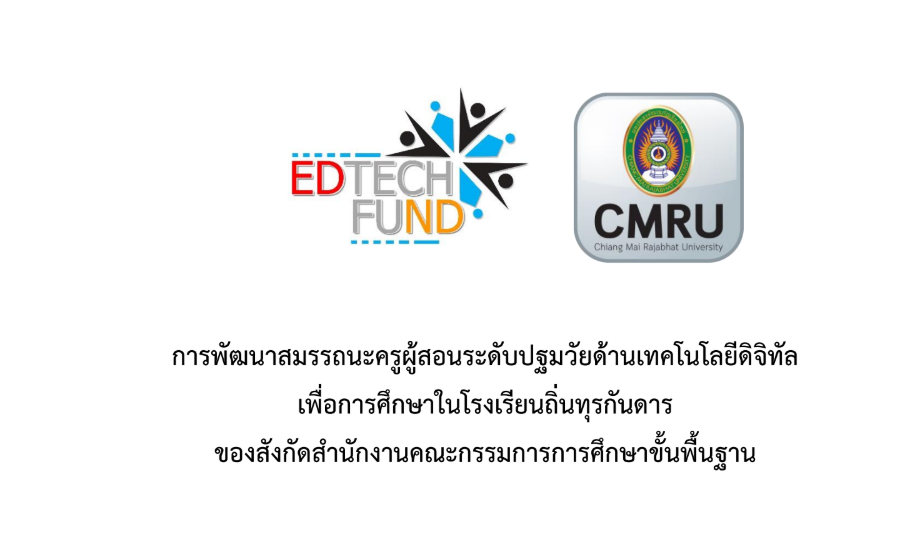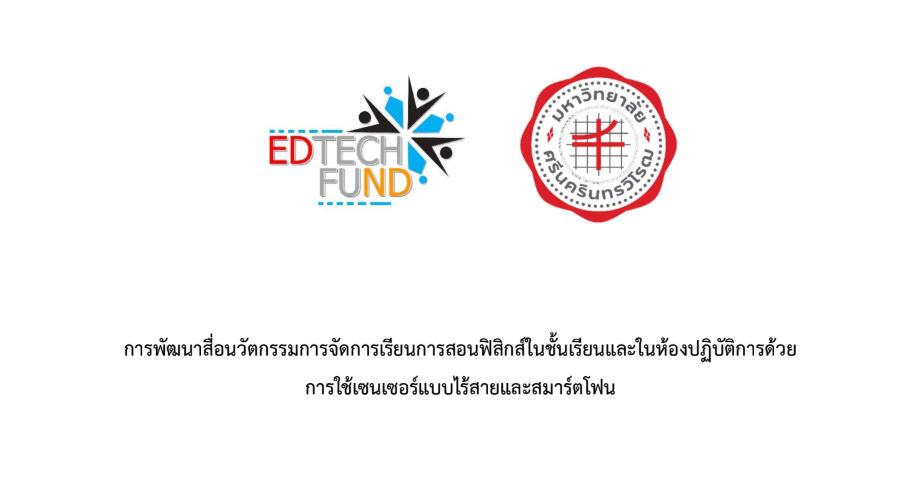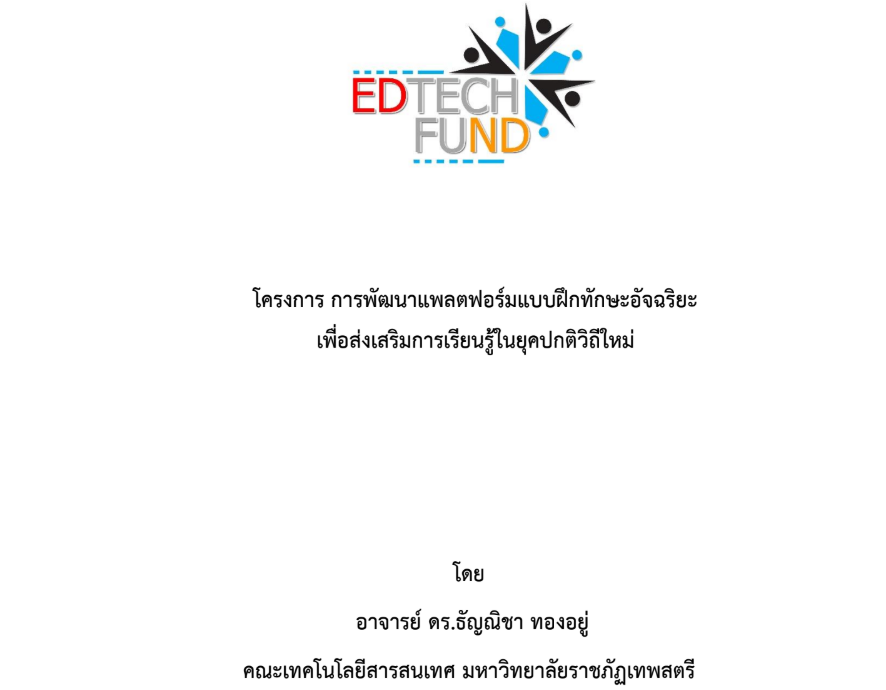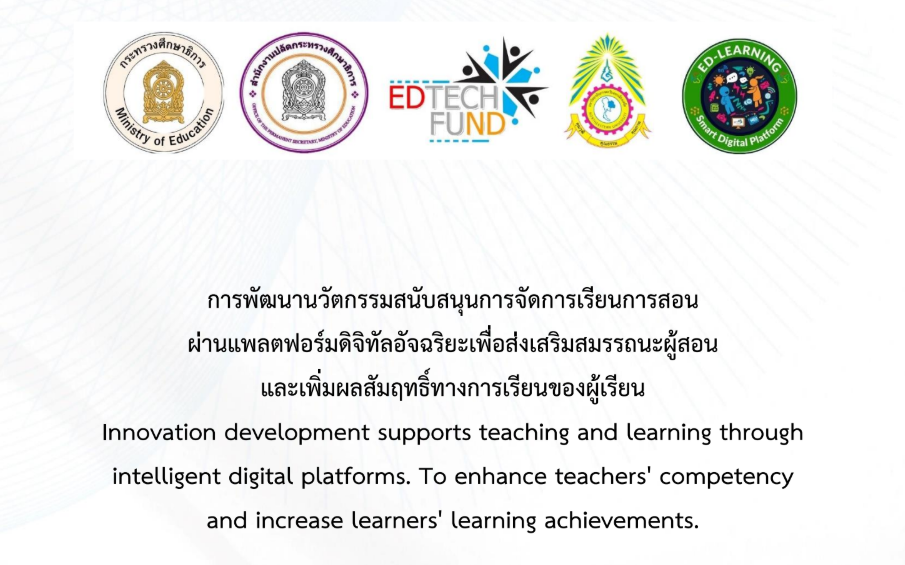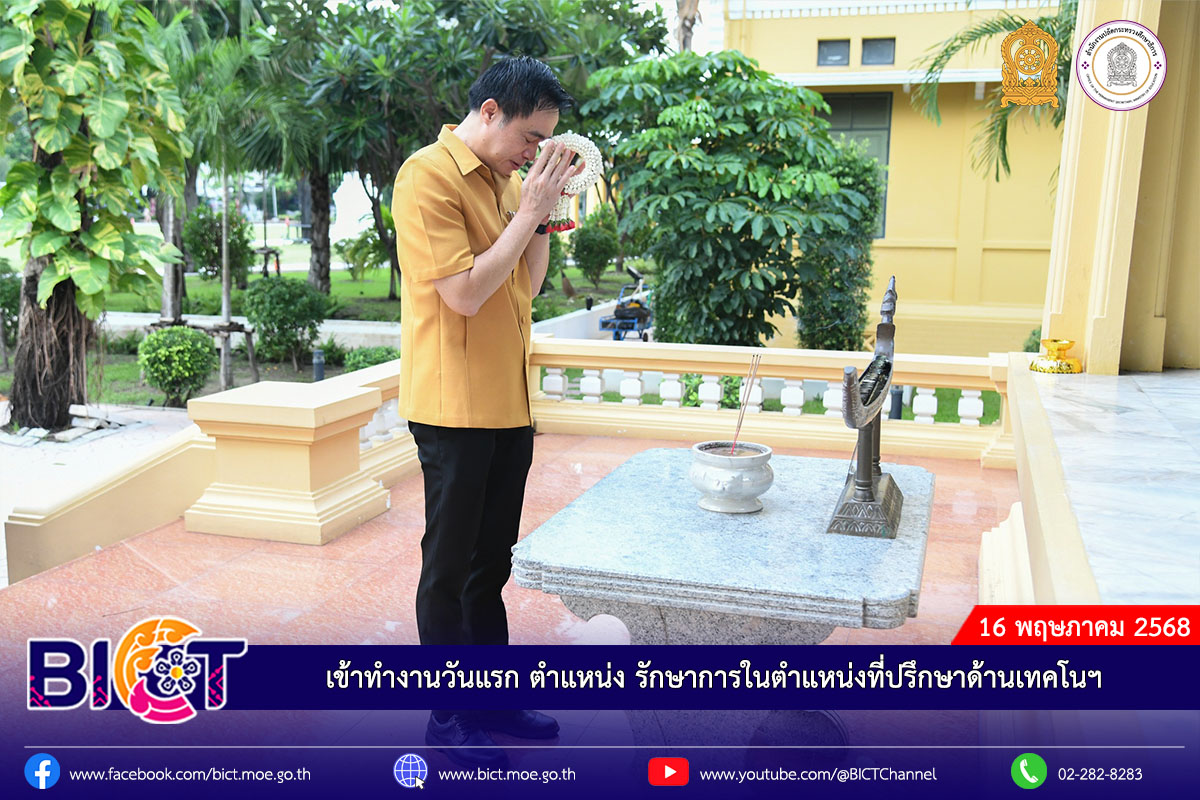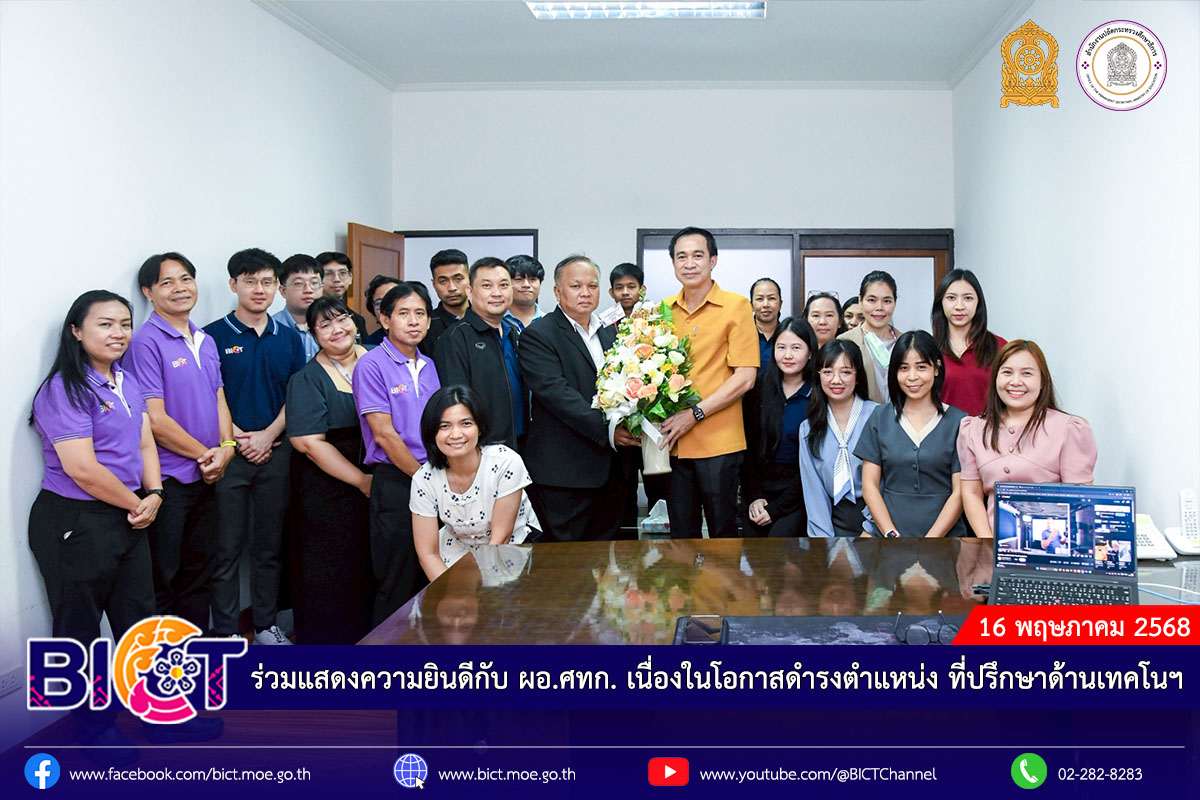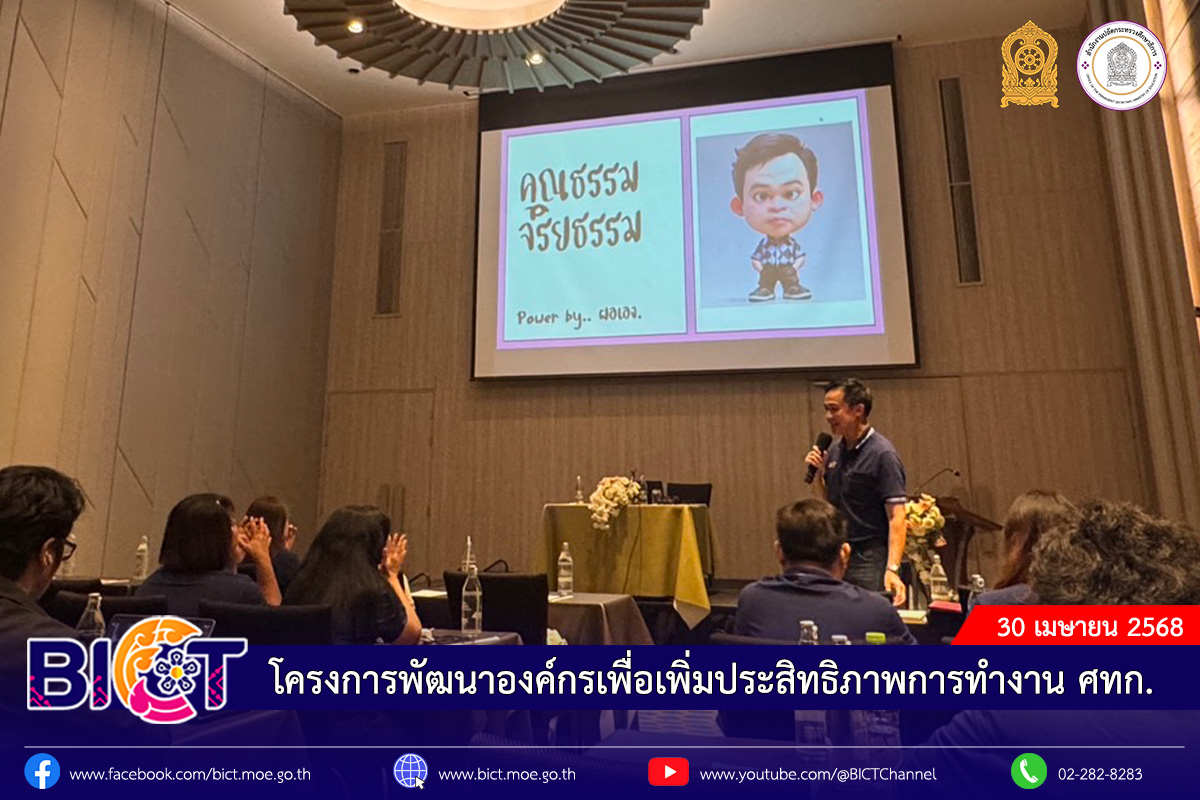โครงการห้องปฏิบัติการเสมือนจริงโรคเขตร้อน คณะเวชศาสตร์เขตร้อน มหาวิทยาลัยมหิดล
18
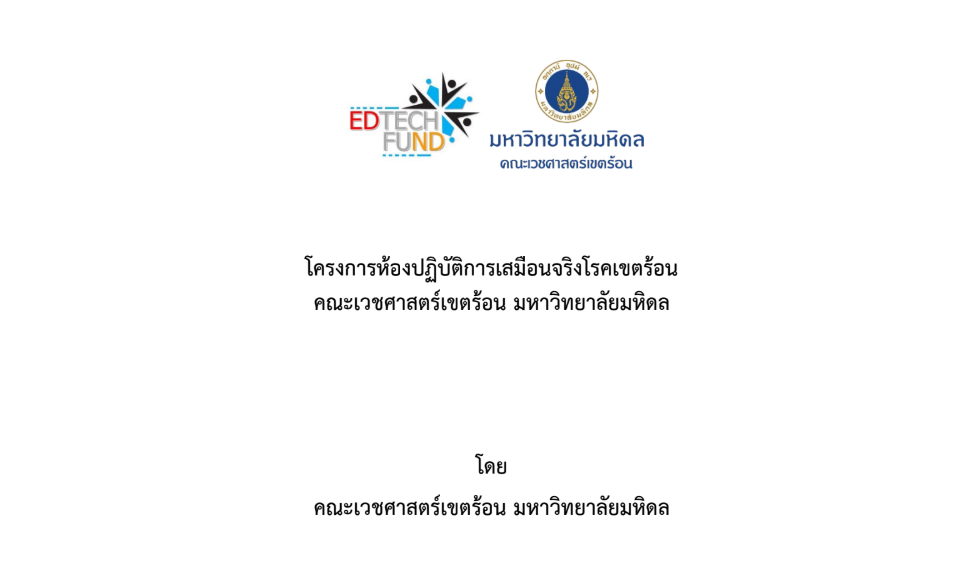
เลขที่สัญญา 8/2565
| Other Title: | โครงการห้องปฏิบัติการเสมือนจริงโรคเขตร้อน คณะเวชศาสตร์เขตร้อน มหาวิทยาลัยมหิดล |
| Author: | คณะเวชศาสตร์เขตร้อน มหาวิทยาลัยมหิดล |
| Date: | 2022 |
| Publisher: | กองทุนพัฒนาเทคโนโลยีเพื่อการศึกษา กระทรวงศึกษาธิการ |
| Abstract: | การศึกษาไทยในยุคปัจจุบันที่เทคโนโลยีและนวัตกรรมมีบทบาทสำคัญและมีความก้าวหน้าอย่างก้าวกระโดด รวมถึงพฤติกรรมการใช้ชีวิตและการเรียนรู้ที่เปลี่ยนแปลงไป ทำให้การเรียนรู้ไม่อยู่แต่เพียงในตำรา และห้องเรียน เพื่อให้สอดคล้องกับการจัดการเรียนรู้ในศตวรรษที่ 21 การใช้เทคโนโลยีในการเรียนรู้ เช่น การใช้คอมพิวเตอร์และอินเตอร์เน็ตในการเรียนรู้ แพลตฟอร์มการเรียนรู้ออนไลน์ เกม และแอปพลิเคชันการศึกษาเพื่อเสริมสร้างประสบการณ์การเรียนรู้ที่น่าสนุก เรียนได้ทุกที่ และมีความเปิดกว้างเนื่องจากให้บุคคลในกลุ่มต่าง ๆ เข้าถึงได้ง่าย ไม่จำกัดวงอยู่แต่ภายในโรงเรียน หรือมหาวิทยาลัย ผู้วิจัยในฐานะอาจารย์และผู้เชี่ยวชาญด้านโรคเขตร้อน เล็งเห็นความสำคัญของการที่นักเรียน นักศึกษา และประชาชนทั่วไป สมควรมีความรู้พื้นฐานที่สำคัญในเรื่องของโรคที่พบมากในเขตร้อน เพื่อให้สามารถป้องกันตนเอง ดูแลตนเองเบื้องต้นได้ รวมถึงส่งเสริมการเรียนรู้ด้านวิทยาศาสตร์ห้องปฏิบัติการ จึงได้สร้างบทเรียนดิจิตัลที่เป็นเกม ในการสอนเนื้อหาโรคเขตร้อนที่สำคัญ 3 โรค คือ ไข้มาลาเรีย ไข้เลือดออกเด็งกี่ และไข้ฉี่หนู โดยจัดทำบทเรียนใส่เนื้อหาเข้าไปในเกม และสอดแทรกการเรียนรู้ทางห้องปฏิบัติการ ในรูปแบบเกมและการทำ Virtual Reality Video เพื่อให้ผู้เรียนเกิดความสนุกสนาน ตื่นเต้น และท้าทาย ในการเรียนรู้ ส่งผลให้การเรียนรู้นั้น ไม่น่าเบื่อจากการนำไปใช้ในกลุ่มนักเรียน นักศึกษา จำนวนกว่า 300 ครั้ง และกลุ่มประชาชนทั่วไป กว่า 170 ครั้ง พบว่าผู้เรียนมีความรู้ความเข้าใจในโรคทั้ง 3 โรคเพิ่มขึ้น และสามารถทำแบบทดสอบความรู้ท้ายบทเรียนได้คะแนนเกินร้อยละ 80 และได้รับประกาศนียบัตรออนไลน์จากระบบ เกินกว่าร้อยละ 90 ในทั้ง 3 โรค และผู้เข้าเรียนได้ร่วมประเมินความพึงพอใจต่อการใช้บทเรียน ในแง่การนำมาใช้ประโยชน์ในชีวิตประจำวันได้ ความน่าสนใจของบทเรียน ความง่ายต่อการใช้งาน ในระดับคะแนนเกิน 4.70 (จากคะแนนเต็ม 5) ทั้งนี้บทเรียนที่ได้ยังมีข้อจำกัดเรื่องเทคนิคด้านเกม ซึ่งยังคงเป็นรูปแบบเกมที่ง่ายและเป็นพื้นฐาน ซึ่งอาจจะเหมาะกับเด็กและผู้สูงวัย หรือผู้ที่ไม่ถนัดกับการเล่นเกม แต่อาจจะน่าเบื่อสำหรับกลุ่มวัยรุ่นหรือนักเล่นเกมทั้งหลาย ที่จะชินกับการเล่นเกมที่มีเทคโนโลยีที่มีความล้ำสมัยมากขึ้น และมีระดับความยาก มีเทคนิคของเกมในการจูงใจ เป็นต้น ซึ่งน่าจะเป็นสิ่งที่ผู้วิจัยควรทำการพัฒนาต่อยอด รวมถึงการเพิ่มเนื้อหาบทเรียน ไปสู่โรคอื่น ๆ ให้ครอบคลุมมากขึ้น คำหลัก : ห้องปฏิบัติการเสมือนจริง, โรคเขตร้อน, ไข้เลือดออกเด็งกี่, ไข้มาลาเรีย, ไข้ฉี่หนู Current education in Thailand is significantly influenced and advanced by technology and innovation, as well as changing lifestyles and learning behaviors. This evolution has made learning extend beyond textbooks and classrooms. To align with 21st century education management, the use of technology in learning, such as computers, the internet, online learning platforms, games, and educational applications, enhances a fun learning experience. It allows learning to happen anywhere and is accessible to various groups of people, not limited to schools or universities. As a researcher, lecturer, and expert in tropical diseases, we recognize the importance of providing students, both academic and general, with fundamental knowledge about common tropical diseases. This knowledge is crucial for self-protection and basic self-care and also to promote laboratory science learning. Therefore, we have created digital lessons in the form of games to teach three major tropical diseases: malaria, dengue fever, and leptospirosis. These lessons incorporated in the game contents and laboratory learning through game formats and virtual reality videos. This makes the learners the new experiences in learning with fun, excitement, and challenging, thus preventing boredom. The implementation of these lessons has been conducted over 300 times with students and over 170 times with the general public. The results show that learners have increased their understanding of the three diseases and scored over 80% on post-lesson knowledge tests. Additionally, more than 90% of participants received online certificates for all three diseases. The participants also evaluated the lessons highly in terms of practical use in daily life, interest, and ease of use, with scores exceeding 4.70 out of 5. However, the current lessons are technically simple and basic, which may be suitable for children, the elderly, or those unfamiliar with gaming. For teenagers or avid gamers who are familial with advanced technology and more challenging game mechanics, these lessons might seem boring. This limitation indicates a need for further development and enhancement of game techniques and the inclusion of more comprehensive lesson contents on additional diseases. Keywords : Virtual Laboratory, Tropical Diseases, Dengue, Malaria, Leptospirosis |
| เจ้าของลิขสิทธิ์: | กองทุนพัฒนาเทคโนโลยีเพื่อการศึกษา กระทรวงศึกษาธิการ |
| ดู/เปิด: |
ข่าวสารที่เกี่ยวข้อง
การพัฒนาสื่อสร้างสารภาษาไทยเพื่อการบริการสำหรับผู้บกพร่องทางการได้ยิน
17 มีนาคม 2568
21
ครั้ง
การพัฒนาแพลตฟอร์มแบบฝึกทักษะอัจฉริยะเพื่อส่งเสริมการเรียนรู้ในยุคปกติวิถีใหม่
17 มีนาคม 2568
20
ครั้ง
ข่าวสารล่าสุด
ร่วมแสดงความยินดีกับ ผอ.ศทก. เนื่องในโอกาสดำรงตำแหน่ง ที่ปรึกษาด้านเทคโนฯ
16 พฤษภาคม 2568
15
ครั้ง
ข้อมูลเชิงสถิติเรื่องร้องเรียนการทุจริตและประพฤติมิชอบประจำปี 2567
13 พฤษภาคม 2568
18
ครั้ง
ข้อมูลสถิติเชิงให้บริการ 2567
13 พฤษภาคม 2568
19
ครั้ง
โครงการพัฒนาองค์กรเพื่อเพิ่มประสิทธิภาพการทำงาน ศทก.
30 เมษายน 2568
33
ครั้ง


